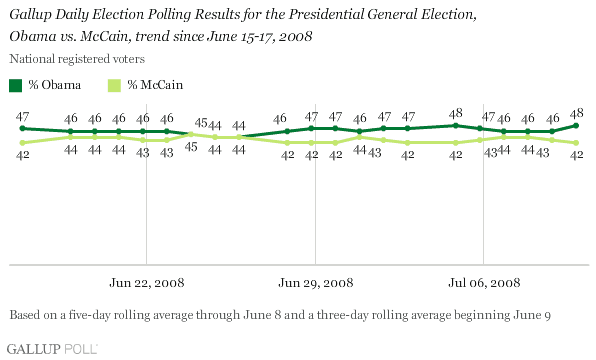July 11, 2008
A Hint of New Life to a McCain Birth Issue
By ADAM LIPTAK
In the most detailed examination yet of Senator John McCains eligibility to be president, a law professor at the University of Arizona has concluded that neither Mr. McCains birth in 1936 in the Panama Canal Zone nor the fact that his parents were American citizens is enough to satisfy the constitutional requirement that the president must be a natural-born citizen.
The analysis, by Prof. Gabriel J. Chin, focused on a 1937 law that has been largely overlooked in the debate over Mr. McCains eligibility to be president. The law conferred citizenship on children of American parents born in the Canal Zone after 1904, and it made John McCain a citizen just before his first birthday. But the law came too late, Professor Chin argued, to make Mr. McCain a natural-born citizen.
Its preposterous that a technicality like this can make a difference in an advanced democracy, Professor Chin said. But this is the constitutional text that we have.
Several legal experts said that Professor Chins analysis was careful and plausible. But they added that nothing was very likely to follow from it.
No court will get close to it, and everyone else is on board, so theres a constitutional consensus, the merits of arguments such as this one aside, said Peter J. Spiro, an authority on the law of citizenship at Temple University.
Mr. McCain has dismissed any suggestion that he does not meet the citizenship test.
In April, the Senate approved a nonbinding resolution declaring that Mr. McCain is eligible to be president. Its sponsors said the nations founders would have never intended to deny the presidency to the offspring of military personnel stationed out of the country.
A lawsuit challenging Mr. McCains qualifications is pending in the Federal District Court in Concord, N.H.
There are, Professor Chin argued in his analysis, only two ways to become a natural-born citizen. One, specified in the Constitution, is to be born in the United States. The other way is to be covered by a law enacted by Congress at the time of ones birth.
Professor Chin wrote that simply being born in the Canal Zone did not satisfy the 14th Amendment, which says that all persons born or naturalized in the United States, and subject to the jurisdiction thereof, are citizens of the United States.
A series of early-20th-century decisions known as the Insular Cases, he wrote, ruled that unincorporated territories acquired by the United States were not part of the nation for constitutional purposes. The Insular Cases did not directly address the Canal Zone. But the zone was generally considered an unincorporated territory before it was returned to Panama in 1999, and some people born in the Canal Zone when it was under American jurisdiction have been deported from the United States or convicted of being here illegally.
The second way Mr. McCain could have, and ultimately did, become a citizen was by statute, Professor Chin wrote. In Rogers v. Bellei in 1971, the Supreme Court said Congress had broad authority to decide whether and when children born to American citizens abroad are citizens.
At the time of Mr. McCains birth, the relevant law granted citizenship to any child born to an American parent out of the limits and jurisdiction of the United States. Professor Chin said the term limits and jurisdiction left a crucial gap. The Canal Zone was beyond the limits of the United States but not beyond its jurisdiction, and thus the law did not apply to Mr. McCain.
In 1937, Congress addressed the problem, enacting a law that granted citizenship to people born in the Canal Zone after 1904. That made Mr. McCain a citizen, but not one who was naturally born, Professor Chin said, because the citizenship was conferred after his birth.
In his paper and in an interview, Professor Chin, a registered Democrat, said he had no political motive in raising the question.
In March, Laurence H. Tribe, a law professor at Harvard and an adviser to Senator Barack Obama, prepared a memorandum on these questions with Theodore B. Olson, a former solicitor general in the Bush administration. The memorandum concluded that Mr. McCain is a natural-born citizen based on the place of his birth, the citizenship of his parents and their service to the country.
In an interview on Thursday, Mr. Olson, whose firm represents Mr. McCain in the New Hampshire lawsuit, said Congress could not have intended to leave the gap described by Professor Chin. The 1937 law, Mr. Olson said, was not a fix but a way to clarify what Congress had meant all along.
Professor Tribe agreed. Reading the limits and jurisdiction clause as Professor Chin does, Professor Tribe said, is to attribute a crazy design to Congress that would create an irrational gap.
Brian Rogers, a McCain spokesman, said the campaign concurred and was confident Mr. McCain is eligible to serve.
In the motion to dismiss the New Hampshire suit, Mr. McCains lawyers said an individual citizen like the plaintiff, a Nashua man named Fred Hollander, lacks proof of direct injury and cannot sue.
Daniel P. Tokaji, an election law expert at Ohio State University, agreed. It is awfully unlikely that a federal court would say that an individual voter has standing, he said. It is questionable whether anyone would have standing to raise that claim. Youd have to think a federal court would look for every possible way to avoid deciding the issue.


